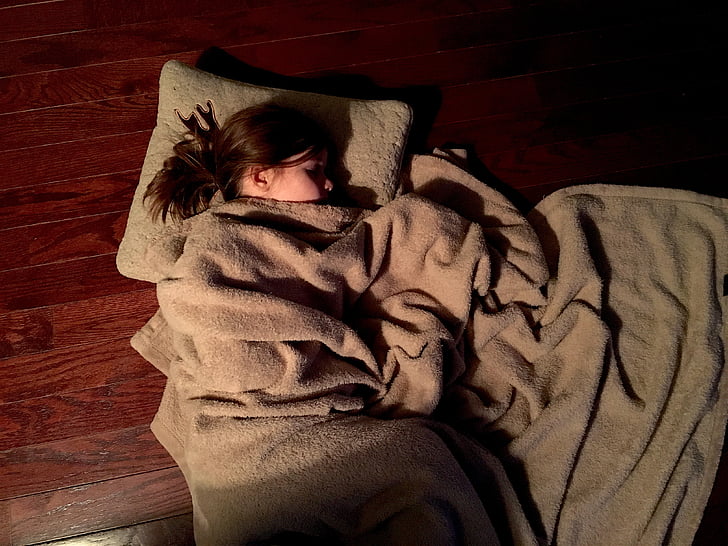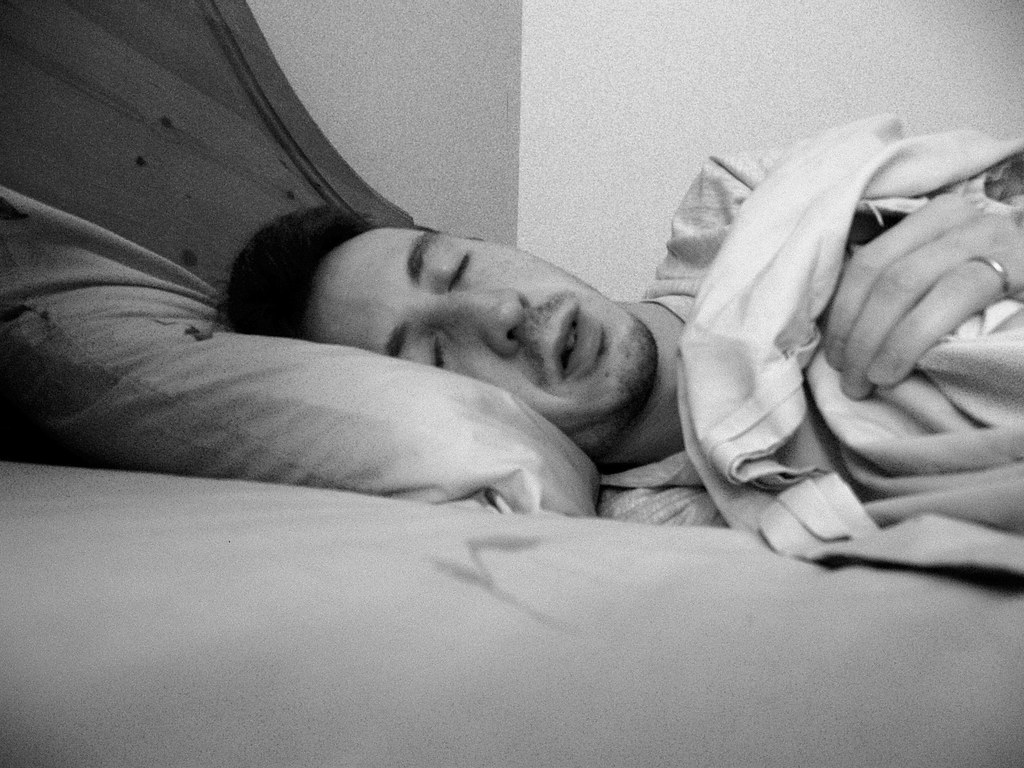Sleep is an essential biological process that plays a crucial role in our overall well-being. Beyond its restorative effects on the body, sleep also has a profound impact on our mental health. Our emotions and cognitive functions are tightly intertwined with the quality and quantity of sleep we receive each night. In this article, we will explore the intricate relationship between sleep and emotions, and delve into the scientific evidence that reveals the significant impact sleep has on our mental well-being. By examining the latest research and exploring various theories, we hope to shed light on the importance of sleep in maintaining optimal mental health and promoting emotional balance.
Understanding the Relationship between Sleep and Emotional Health
Sleep plays a crucial role in our emotional well-being, and understanding the intricate relationship between sleep and emotional health is essential for maintaining a balanced life. Lack of quality sleep can have a profound impact on our emotional state and overall mental health.
Here are some key points to consider when it comes to the connection between sleep and emotional health:
- Mood regulation: Adequate sleep aids in regulating our moods. When we don’t get enough sleep, we may become more irritable, anxious, or easily upset. This can affect our relationships, work performance, and overall quality of life.
- Stress and resilience: Sleep deprivation impairs our ability to cope with stress. It lowers our resilience and can make us more susceptible to emotional challenges. On the other hand, getting enough sleep enhances our ability to manage stress and maintain a positive outlook.
- Emotional processing: During sleep, our brains process and consolidate emotions from the day. This helps us better understand and regulate our feelings. When we lack sufficient sleep, it becomes more difficult for our brains to effectively process emotions, leading to emotional instability.
Improving sleep quality and duration can greatly benefit our emotional well-being. Establishing a consistent sleep schedule, creating a comfortable sleep environment, and practicing relaxation techniques before bed can promote better sleep. Prioritizing regular exercise, managing stress levels, and avoiding stimulants like caffeine and electronic devices close to bedtime can also contribute to a healthier sleep-emotion cycle.

Exploring the Psychological Effects of Sleep Deprivation
When it comes to sleep deprivation, the impact goes far beyond just feeling tired. The psychological effects of sleep deprivation can have a profound effect on our overall well-being. Here are some key insights into the ways in which lack of sleep can affect our mental health:
1. Cognitive impairment: Sleep deprivation can lead to difficulties in concentration, memory, and problem-solving. Our ability to think clearly and make decisions becomes compromised, affecting our productivity and performance in daily activities.
2. Emotional instability: Sleep deprivation can make it harder to regulate our emotions, leading to mood swings, irritability, and heightened reactivity to stressors. It becomes challenging to manage and control our emotional responses, potentially impacting our relationships and overall quality of life.
3. Increased risk of mental health disorders: Prolonged sleep deprivation has been linked to a higher risk of developing mental health disorders such as depression and anxiety. Lack of sleep disrupts the delicate balance of chemicals in our brain, increasing vulnerability to these conditions.
4. Impaired social interactions: Sleep deprivation can affect our social skills and ability to pick up on social cues. We may find it more challenging to connect with others, leading to feelings of loneliness and isolation.
5. Decreased emotional resilience: Lack of sleep can make it harder for us to cope with stress and setbacks. We may become more easily overwhelmed, making it challenging to bounce back from difficult situations.
Recommendations for Improving Sleep to Boost Mental Well-Being
Healthy sleep is essential for maintaining optimal mental well-being. Lack of quality sleep can lead to a decline in cognitive function, increase the risk of mental health disorders, and negatively impact our overall mood and productivity. If you’re struggling with sleep-related issues, here are some practical recommendations to help you improve your sleep and boost your mental well-being:
- Establish a consistent sleep schedule: Try to go to bed and wake up at the same time every day, even on weekends. This helps regulate your body’s internal clock and promotes better quality sleep.
- Create a sleep-friendly environment: Make sure your bedroom is dark, quiet, and at a comfortable temperature. Use earplugs or a white noise machine if needed, and ensure your mattress and pillows provide adequate support.
- Avoid stimulants before bed: Caffeine, nicotine, and alcohol can interfere with your sleep patterns. Limit your intake of these substances, especially in the evening, to improve your chances of falling asleep quickly and staying asleep through the night.
- Practice a bedtime routine: Engage in relaxing activities before sleep, such as reading a book, taking a warm bath, or practicing mindfulness techniques. This signals to your body that it’s time to wind down, making it easier to transition into sleep.
- Avoid electronic devices before bed: The blue light emitted by smartphones, tablets, and computers can disrupt your body’s natural sleep-wake cycle. Avoid using electronic devices at least one hour before bed, or consider using blue light filters or dimming settings to minimize the impact.
- Exercise regularly: Physical activity during the day can contribute to better sleep at night. Engage in moderate-intensity exercise, such as brisk walking or jogging, for at least 30 minutes most days of the week. However, avoid exercising too close to bedtime, as it may energize you and make it harder to fall asleep.
By implementing these recommendations into your daily routine, you can create a sleep-friendly lifestyle that promotes mental well-being. Remember, everyone’s sleep needs are different, so it may take some trial and error to find the techniques that work best for you. Prioritize your sleep, and you’ll be on your way to enjoying improved mental health and overall wellness.
The Role of Sleep Hygiene in Promoting Emotional Resilience
Sleep hygiene is crucial for maintaining overall physical and mental well-being. But did you know that it also plays a significant role in promoting emotional resilience? In today’s fast-paced world, where stress and anxiety are prevalent, establishing healthy sleep habits can help build emotional strength and improve our ability to cope with life’s challenges.
A good night’s sleep not only allows our bodies to rest and rejuvenate but also has a profound impact on our emotions. Here are a few ways in which practicing proper sleep hygiene can contribute to enhancing emotional resilience:
- Regulating Mood: Consistently getting enough sleep can help regulate our emotions and stabilize our mood. It allows the brain to process and regulate emotions effectively, reducing irritability and enhancing overall emotional well-being.
- Stress Reduction: When we don’t get enough sleep, the body produces higher levels of stress hormones like cortisol. By prioritizing quality sleep, we can lower our stress levels and improve our resilience in dealing with daily stressors.
- Enhanced Cognitive Function: Sleep deprivation can impair our cognitive function and negatively affect our ability to think clearly and handle emotions effectively. By practicing good sleep hygiene, we optimize our cognitive abilities and can better manage challenging situations.
Cultivating healthy sleep habits ultimately supports emotional resilience, allowing us to face adversity with a greater sense of calm and perspective. Prioritizing regular sleep patterns, creating a comfortable sleep environment, and practicing relaxation techniques can all contribute to improved sleep hygiene and increased emotional strength.
Final Thoughts
In conclusion, it is evident that sleep plays a significant role in our mental well-being, influencing our emotions and overall emotional stability. Adequate and restful sleep is crucial for maintaining a balanced emotional state and protecting ourselves against various mental health issues. This article has shed light on the intricate relationship between sleep and emotions, highlighting how insufficient sleep can disrupt our emotional regulation, while healthy sleep patterns can contribute to enhanced emotional resilience.
Understanding the impact of sleep on our mental well-being can provide valuable insights for individuals struggling with emotional disturbances or seeking ways to improve their overall mental health. By prioritizing a good night’s sleep, incorporating healthy sleep habits, and addressing any underlying sleep disorders, we can positively impact our emotional well-being.
It is important to note that while sleep undoubtedly plays a pivotal role in our emotions, it is not a standalone solution for psychological conditions. Seeking professional help and adopting comprehensive approaches to mental health management are imperative. A multidimensional strategy that combines proper sleep hygiene, proper nutrition, regular exercise, stress management techniques, and therapy can all work together to ensure optimal mental well-being.
We hope that this article has shed light on the impact of sleep on our emotions, further emphasizing the significance of a restful night’s sleep. By acknowledging the importance of sleep in our lives and taking proactive steps to improve our sleep quality, we can empower ourselves to achieve emotional stability and overall mental health.
Recent research indicates that sleep and emotions are connected in powerful and meaningful ways, with implications for our mental well-being. In an age where we are increasingly sleep deprived, understanding this relationship is essential for improving mental health.
When individuals experience issues with sleep, such as insomnia or disrupted sleep patterns, there can be an impact on mental well-being. Studies have demonstrated a correlation between sleep disturbances and negative emotions, such as depression, anxiety and stress. The lack of sleep can worsen the symptoms of mental health issues, making the individual feel worse. It can also put them at greater risk for developing mental health issues, or could be a sign of a mental health issue.
In addition to those who suffer from mental health issues, lack of sleep can affect everyone. It has been linked to impairments in cognitive functioning, which can lead to memory loss, concentration problems and difficulty making decisions. Lack of sleep can also lead to irritability and mood swings. In the long term, insufficient sleep can be detrimental to physical health, cause depression and impair emotional intelligence.
Regularly getting enough good quality sleep is essential for emotional wellness. It is believed that good quality sleep helps to regulate one’s emotional state. Poor sleep causes changes in the body’s hormones, resulting in a state of imbalance. The brain then sends out signals that have a negative effect on emotions and mental health.
Getting enough sleep is something that can be improved with the right lifestyle adjustments. Going to bed and waking up at the same times each day, having a regular exercise routine and eating nutritious meals at regular intervals can all help to improve the quality and quantity of sleep. By concentrating on improved sleep hygiene, individuals can improve mental well-being.
In conclusion, getting enough good quality sleep is fundamental to emotional wellbeing. Sleep and emotions are intertwined, and when sleep is disrupted, a person’s mental and physical health can suffer. It is important to make adjustments in terms of lifestyle and sleep hygiene in order to get optimal rest and ensure emotional wellbeing.







